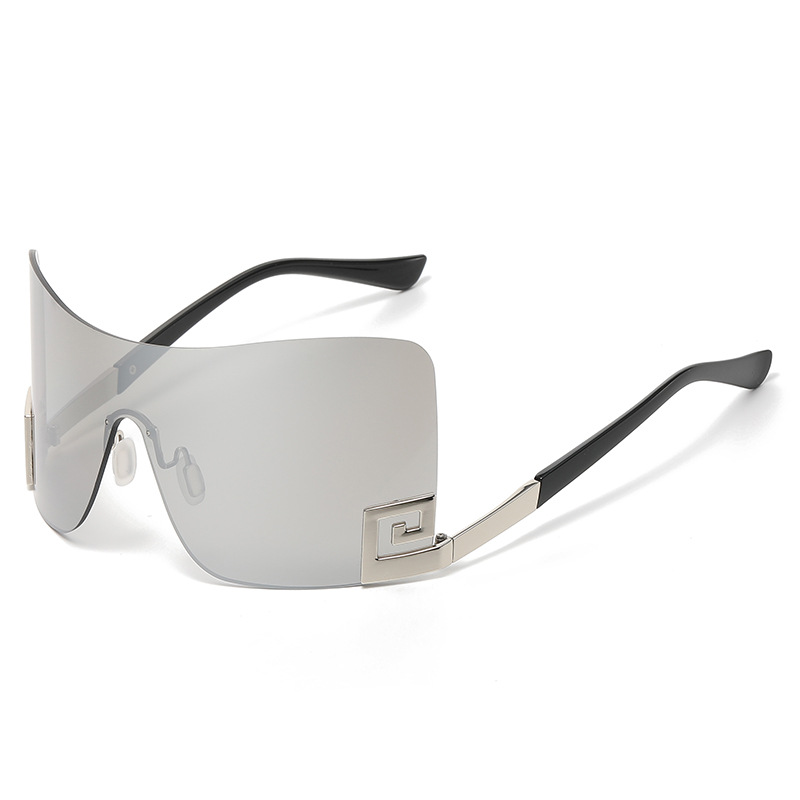



Frameless metal glasses are popular for their lightweight design and minimalistic appearance. They are constructed with lenses connected by screws or bridges directly to the temples and nose pads, without a full frame surrounding the lenses. While these glasses offer certain aesthetic and practical advantages, they can also present challenges in terms of durability, comfort, and maintenance. Understanding these potential problems helps users take preventive measures and make informed choices.

1. Durability and Lens Vulnerability
A primary concern with frameless metal glasses is reduced structural durability and increased lens vulnerability compared with full-frame designs.
Fragility of lenses: Because the lenses are exposed along their edges, they are more susceptible to chipping, cracking, or breaking if dropped or subjected to impact. For example, an individual who accidentally drops frameless glasses on a hard surface may experience a cracked lens, which requires costly replacement.
Screw and connection weakness: Rimless glasses rely on screws or small fittings to attach the lenses to the temples and bridge. Over time, these screws may loosen due to vibration, wear, or repeated handling. Loose connections can cause the lenses to wobble or detach entirely.
Solution: Users can reduce the risk of damage by handling glasses carefully, storing them in hard protective cases, and performing regular inspections to tighten screws. Manufacturers sometimes provide reinforced screws or use thread-locking compounds to improve stability.
Durability concerns are a practical consideration for those with active lifestyles or frequent handling of glasses.
2. Comfort and Fit Issues
Another problem with frameless metal glasses relates to comfort and proper fit, which can affect daily usability.
Nose pad pressure: Frameless glasses typically use adjustable nose pads to support the lenses. If improperly fitted, these pads can exert uneven pressure on the nose, causing discomfort or red marks after extended wear.
Temple alignment: The temples of rimless glasses may require precise adjustment to ensure the lenses sit level and the glasses do not slide down the nose. Misaligned temples can skewed vision or frequent adjustments during wear.
Solution: Regular adjustment by a professional optician ensures even pressure distribution and proper alignment. Users can also select glasses with silicone or soft nose pads to enhance comfort.
Comfort and fit issues can reduce the practicality of frameless glasses, especially for long hours of wear.
3. Maintenance and Cleaning Challenges
Frameless metal glasses often require more careful maintenance and cleaning compared with fully framed glasses.
Lens scratching: Exposed edges and lack of frame protection make lenses more prone to scratches during cleaning or accidental contact with hard surfaces. Using soft microfiber cloths and non-abrasive cleaning solutions is recommended.
Delicate screws and fittings: Cleaning around screws and hinges can be tricky. Excessive force or improper cleaning methods may loosen screws, increasing the risk of lens detachment.
Solution: Gentle, systematic cleaning and regular inspection of screws reduce the likelihood of damage. Some users may choose screwless designs or lightweight titanium fittings for improved resilience.
Maintenance requirements are an important consideration for users seeking long-lasting eyewear.
4. Optical and Visual Concerns
Frameless metal glasses may also present optical challenges due to lens design and lack of frame support.
Lens edge exposure: Without a frame to obscure edges, any minor imperfections or thickness variations in the lenses are more visible. This can be distracting or affect the perceived clarity of vision.
Limited lens shape options: Some complex prescriptions or thicker lenses may not be suitable for rimless designs, as thin, large lenses are easier to secure. This can restrict customization for certain visual needs.
Solution: Consulting with an optician to select compatible lens materials, such as high-index or lightweight polycarbonate, ensures appropriate thickness and optical performance.
Optical considerations may influence user satisfaction and comfort when wearing frameless glasses.